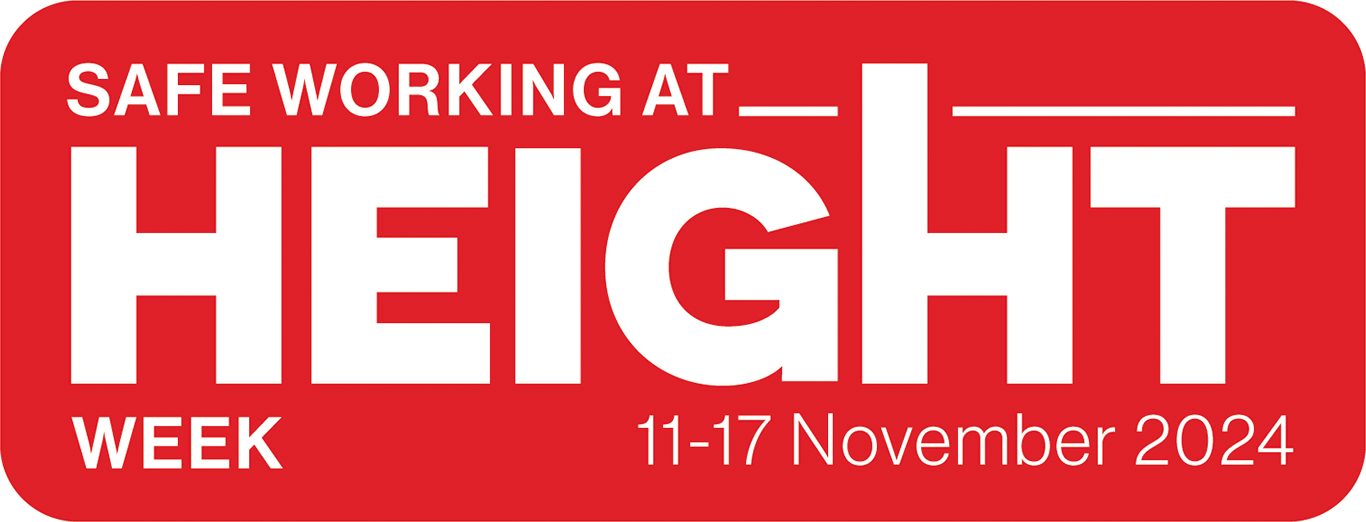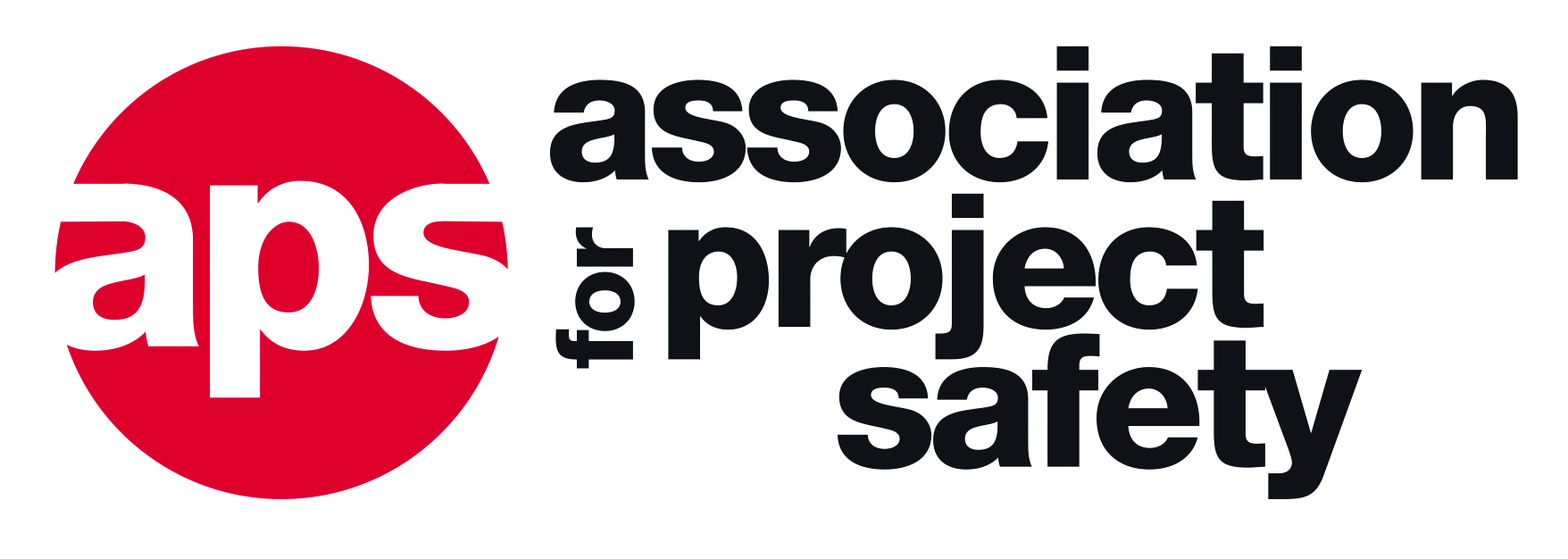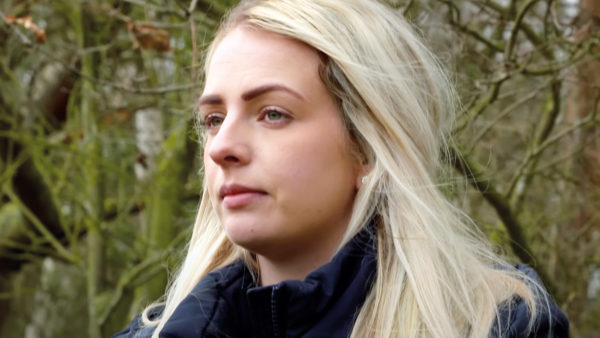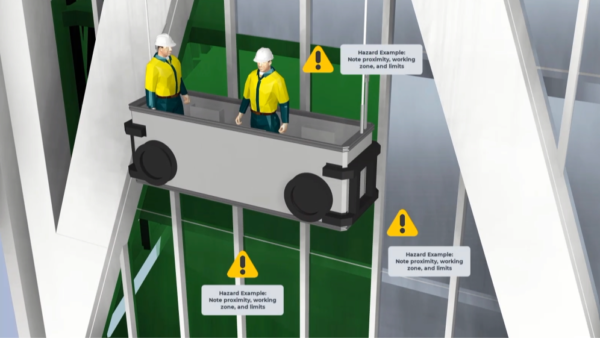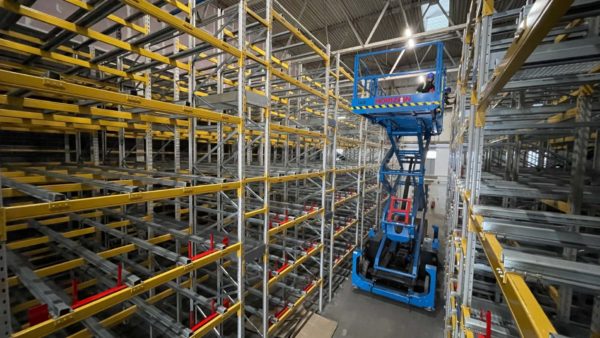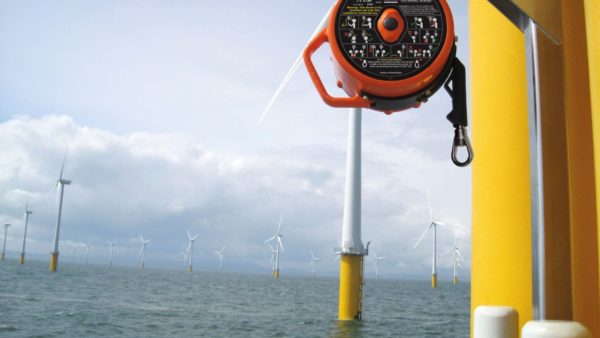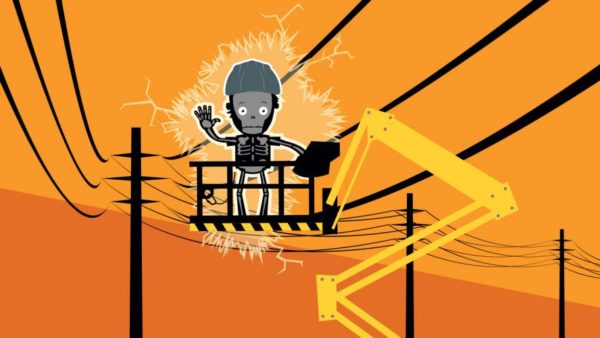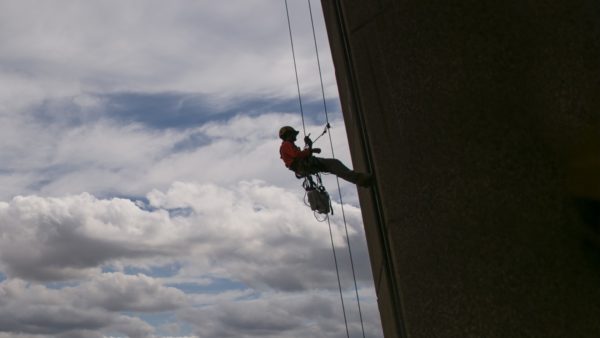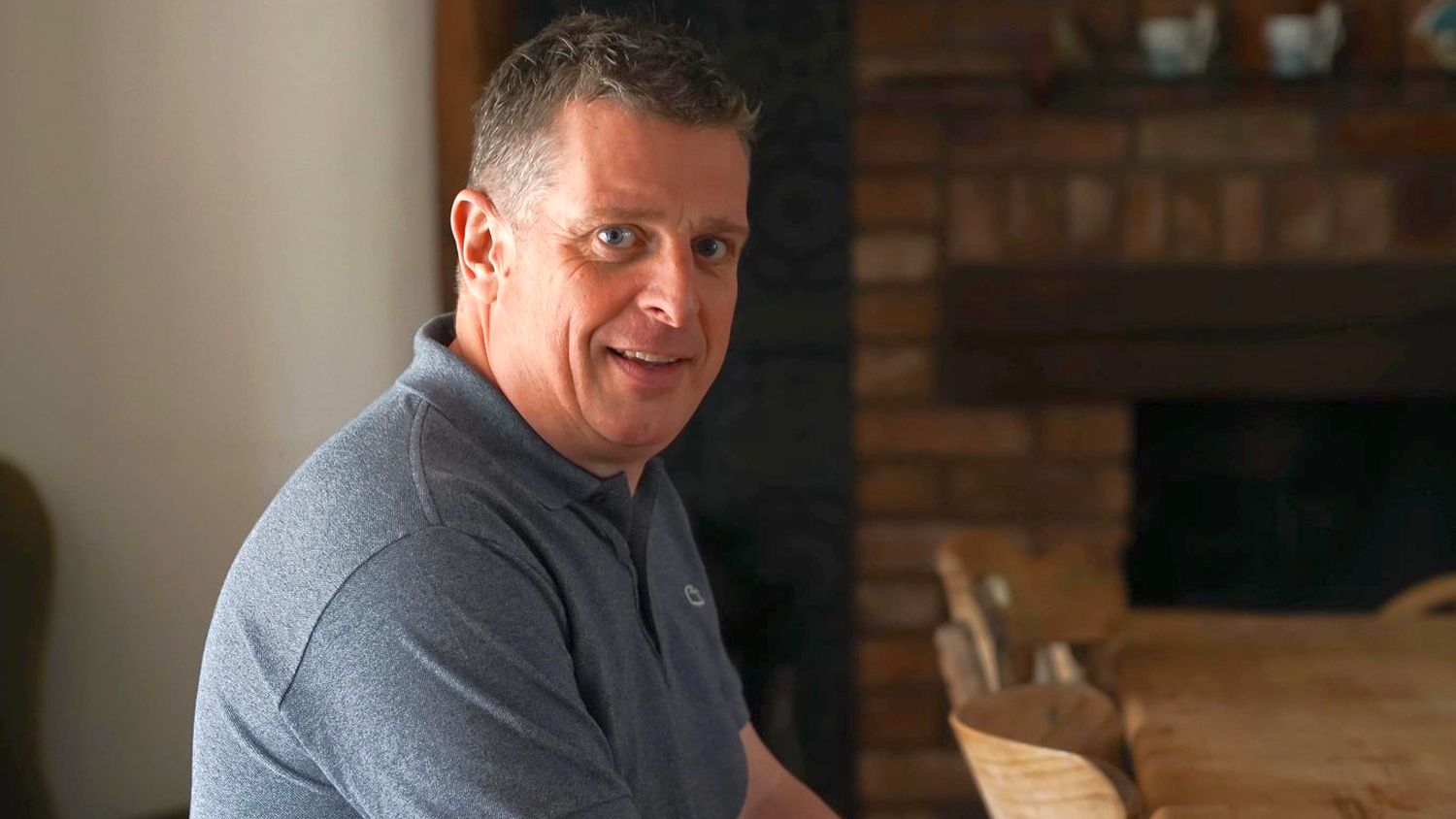
Jason Anker was just 24 years old when he suffered a life-changing fall from height on a construction site.
Now a speaker on behavioural safety training and a patron of the No Falls Foundation, he tells of the extensive physical and emotional repercussions the accident had on his life. And why he believes good mental health among construction workers is key to avoiding accidents.
On 3 January 1993, I was 24 years old. I was married with a couple of young children. I was working as a roofing labourer in construction for my father-in-law’s small roofing company. I was very inexperienced. It wasn’t my profession but it was the 1990s recession and I had been made redundant so my father-in-law gave me a job. I didn’t really like doing what I was doing, but I was a young man and needed to work to earn some money.
The accident
It was the first day back after the Christmas holidays. I arrived on site with low morale. The job I was working on was relatively safe, but in the afternoon, a rush job came in. It was unplanned work – we were asked if we could try to fix a leaking roof on another building.
As a contractor on site, we were always eager to please the client and we decided to give it a go. It was a two-hour job that we tried to get done in one hour and shortcuts were taken. Unfortunately, after finishing the job, I went down the ladder, which was unsupported. The ladder slipped and I fell 10 feet.
Initially I thought I was ok. I had a bang on the back of my head and it was only when I tried to sit up that I realised that I couldn’t feel my legs. I was taken to hospital and went for an X-ray. Initially, I was given the all-clear. They couldn’t see any permanent damage and they put it down to a condition called spinal shock. The prognosis was that in a few hours, days or weeks, I would get all of my sensations back.
Devastating news
But the doctors decided at the last minute to send me for a CT scan. And then I received the devastating news, very matter-of-factly. They had found a small fracture, the damage was significant, and I would never walk again.
I went for a major operation where they inserted steel rods into my back for support. Afterwards, I spent four months in a spinal rehabilitation centre in Sheffield. It basically taught me how to live in a wheelchair – you are doubly incontinent for the rest of your life so you have to learn how to manage that.
I came home from hospital on 25 April 1993 and my wife left the next day, taking my two children. We were having marriage problems before that, obviously with the recession, having no money. We were very young but it had a massive impact on my already poor emotional state. In six months, I had lost my legs and my marriage.
Quite bluntly, I didn’t know how to deal with it. I didn’t know how to speak about how I was feeling and couldn’t talk about my mental state at the time. I had seen my family and friends struggling, so I tried to be the person to keep people cheery. But I was drinking quite heavily at the time anyway and unfortunately it moved on to me taking illegal drugs as well. My drug of choice was ecstasy. It wasn’t to get high and have an enjoyable time – I just couldn’t cope.
Out of control
Things rapidly fell out of control. In January 1995, two years after my accident, I had an unintentional drug overdose. It put me in a coma for 17 days and I had suspected serious brain damage. My mum and dad were advised to turn the machine off. Fortunately, my dad refused and I came round after 17 days. After a five-month recovery, I was able to get home again. It had a similar effect to a stroke, so I now couldn’t move my arms properly as well. I was in a real state.
My daughter came back to me full time to try to give me some focus. And I battled through life. I was looking after my daughter and seeing my son as much as I could. I started water-skiing as well to give me some sort of activity to do. But I was still drinking quite heavily and still secretly battling a number of demons. I found a way of coping and I sort of lived in that existence for a lot of years.
In 2007, 14 years after my accident, I finally got offered £408,000 in compensation. It took 12 years to get to court and another two years before I got the money. Given my emotional state at the time, having all that money actually made it worse for a little while. I was expressing my mental state by just buying things – holidays, clothes, cars, whatever it was.
Finding purpose
But towards the end of 2008, I had a drunken chance meeting with a guy called Dan Terry who did behavioural safety. He has passed away now. He heard about my story and suggested that I start sharing it to industry. Dan set me on a path, not just to relive the accident story, but actually to talk more about the impact that poor safety decision has had on my life and my family’s life.
It’s not the fact that I was in a wheelchair, but that I couldn’t cope with being in a wheelchair. The ripple effect lasts a lifetime. It was all to do with the fact that I didn’t speak up. On the day of the accident, I was in a bad place. I realised the job I was being asked to do was unsafe. I stopped, I thought about it, and I still did it. That is the bit that has been troubling me for a long time.
It links into all the mental health stuff we talk about today. We talk about safety and all the nice safety equipment we use today. But why do people sometimes choose not to use it? A huge part of my presentation today focuses on mental health.
The importance of good mental wellbeing
Recently, I was on a construction site. I find that sharing my accident story isn’t the main thing that interests the guys. But when I switch to talking about the wellbeing side, I see a shift in the guys in the room. They start really paying attention. They recognise they are similar to how was before my accident. When you are in a wheelchair, people don’t want to imagine being in a wheelchair. But when they imagine the mental state I was in, you can see people nodding.
You sometimes think about taking shortcuts and it might save you a few minutes. But when things go wrong, the consequences of that choice will last a lifetime. I am still feeling the effects today of a choice I made to go up an unsupported ladder. It would have taken seconds to rectify safely.
Practicing wellbeing
Even though I have been speaking for 12-13 years, it is only really in the last four years that I have started to turn my life around. I practice wellbeing every day and keep my mind in better shape. I try to encourage the guys to do the things that I do now so they can go to work with a clear mind.
If you have a mental health issue you need to speak up before something happens. It is no good speaking up about a wellbeing issue after an accident. You have to be proactive. If you are feeling bad in the morning, go and have that conversation with you supervisor. We have all this fantastic safety equipment available in construction now.
But it is when people are under pressure and not feeling themselves that they choose not to use the equipment or use it incorrectly. It is sometimes a choice. Management also needs to understand if people are making mistakes or not using equipment correctly then ask the question why. What more can we do? Is there something wrong? Be curious and take the time to find out if there is a problem.
